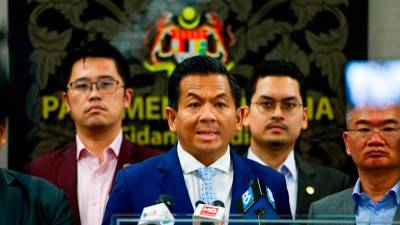KUALA LUMPUR: The government should review corporate tax reliefs for companies recording windfall profits while maintaining large salary gaps between management and lower-level employees.
Backbenchers Club chairman Datuk Mohd Shahar Abdullah said the time has come to implement tax fairness principles linking incentives to fair wage policies and corporate social responsibility.
“Strengthening of trade unions must be included as part of economic structural reforms,“ Mohd Shahar said during the 2026 Supply Bill debate in the Dewan Rakyat.
He noted only 6% of Malaysian workers are unionised, compared to 13% in South Korea, 12% in Indonesia, and 65% in Sweden.
A strong union not only fights for workers’ rights but helps ensure wages and productivity grow in tandem, he added.
Increasing the share of employee compensation should be the main focus in boosting economic fundamentals, Mohd Shahar suggested.
When a larger portion of GDP goes into wages, it directly increases household disposable income and stimulates domestic spending, he explained.
He also proposed revising Rahmah Cash Contribution payments from quarterly to monthly or fortnightly, as implemented in India.
This move can help people manage expenses better and avoid periodic spending spikes, Mohd Shahar said.
“Cash aid is not a permanent solution,“ he added, urging progressive minimum wage growth, workforce retraining, and community economic empowerment.
Mohd Shahar outlined three key housing sector reforms to address structural market imbalances.
Property tax reforms should progressively replace the real property gains tax with a capital gains tax, he suggested.
He also proposed introducing speculation and vacancy taxes to curb activities related to keeping unsold housing units vacant.
Housing planning governance needs streamlining through actual demand-based models and state revenue reforms, he said.
Development planning should not depend solely on high-priced, less affordable projects, Mohd Shahar added.
He proposed targeted protection for first-time homebuyers and a review of the Malaysia My Second Home programme.
This would ensure foreign investments do not add to the glut of luxury properties in the market, he concluded. – Bernama
